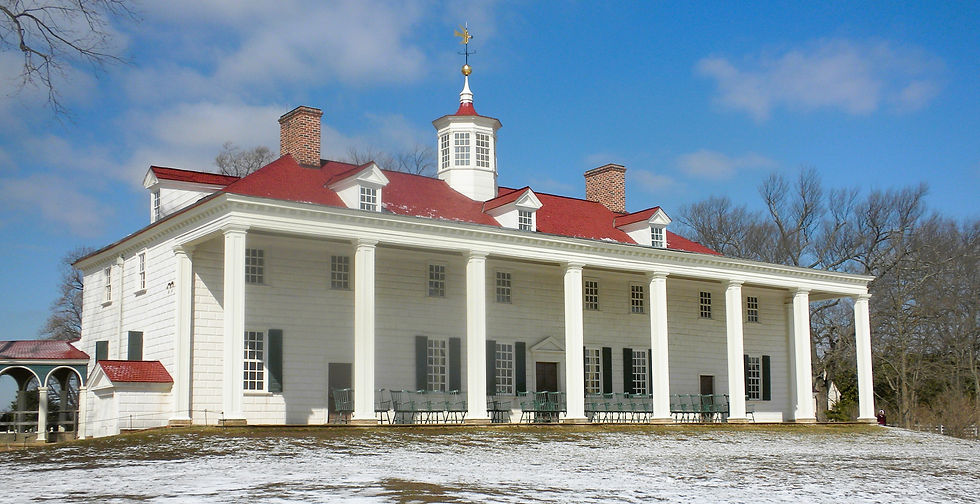Gratitude Friday 07 5 24 Voting Amendments & the 27th Amendment
- Bill Stauffer

- Jul 5, 2024
- 4 min read

Today is the anniversary of the certification of the 26th Amendment to the US Constitution on July 5th, 1971. It is the second to last Constitutional Amendment to be ratified. I actually remember this event, I was six. I also recall from memory as a child why this occurred and note that for a six year old to become aware of such detail highlights that it was something very much in the public dialogue at the time. The 26th Amendment extended voting rights (what is also known as suffrage) to citizens aged 18 years or older. Before this, it was commonly 21 years of age.
For younger readers, this Amendment passed in many ways due to the Vietnam War. Young people were very upset that they were not too young to be drafted to fight in a war, but they were deemed too young to participate in the selection of our nation’s elected leaders. I personally find this stance hard to argue with. My sense is that the strength of this argument is what fueled its passage. The Constitution provides that an amendment may be proposed either by the Congress with a two-thirds majority vote in both the House of Representatives and the Senate or by a constitutional convention called for by two-thirds of the State legislatures and passed by three quarters of the states.
The right to vote in our nation is quite illuminating. We should understand with an unblemished eye our own history as what has happened in our past is essentially the water we swim in, and we should acknowledge it. When our country was formed, white male citizens who owned land were the only people who could vote. Property rights requirements began to be removed in the 1820s. Following the Civil War, voting rights were expanded to allow black men to vote through the 15th Amendment in 1870. In 1920, the 19th Amendment, known as Women’s Suffrage, passed after 100 years of effort. For historians, I know I am glossing over some of the most contested issues in US History in a single paragraph. For interested readers a sense of all this can be found at Voting Rights Milestones in America: A Timeline.
In looking into this post, I looked over the only other Amendment since it became a Constitutionally expressed right for 18-year-olds to vote. I learned about the Twenty-Seventh Amendment which prevents members of Congress from increasing their own salaries by delaying increase until the next term. It has a most unusual history. Congress passed the Twenty-Seventh Amendment by a two-thirds vote of both Houses, in 1789.
What makes it more unusual is that a college sophomore at the University of Texas, was assigned to write a paper about a government process and wrote about the 27th Amendment in 1982. That student, Gregory Watson, got a C on the paper. Maybe if he had received a better grade on his paper, the story would have ended there, but Watson was sure it was a better paper. He appealed his grade, first to his T.A., then to his professor; and when he was unsuccessful, he decided to take the issue to the country. In an NPR report in May 2017, he said that after his teacher affirmed the C, “I thought right then and there, ‘I’m going to get that thing ratified.’” The rest is history. He did what he set out to do. The best legacy of a bad grade on a paper in US History.
I digress from the topic here, the 26th Amendment. A few years after all this happened, I turned 18 and a family friend sent me a voters registration form for my 18th Birthday. I have since then never missed the opportunity to vote and to consider the candidates and my responsibility to make selections on my representation. There are readers of this post who have both similar and dissimilar views. The point of this post is not to sway anyone any way other than to actually vote for people who they believe to be suitable for elected office. For the record, if I was at a voting station and encountered a person whose views were entirely opposite to my own, I would hold the door open for them. I know this is true because I have done so. Call me old-fashioned but to me, nothing is more in line with what I think are the ideals of our nation than that kind of attitude and action. It is in essence at the heart of a quote attributed to Voltaire, ““I wholly disapprove of what you say and will defend to the death your right to say it.”
We have come a long way in this nation since the only people permitted to vote were white male property owners. It has quite literally taken hundreds of years to ensure that the right to vote was so broadly guaranteed. Shenanigans have always and most likely will continue to occur as long as we remain a nation. My sense is that the more deeply we understand this history, the more seriously we will take the privilege and responsibility to vote. A whole lot of people around the world risk their lives for what we have in this right.
The thing that struck me in looking over a topic for this week is that the voting Amendments & the 27th have common ground in that they came from people determined to correct perceived flaws in our guiding document, the Constitution. I for one think that we are at our best when we work to improve our design. Generations before us have fought for ideals to improve who and what we are. I am grateful for this. It is not always pretty but it is the hallmark of a representative government. May we continue this grand experiment in self-governance in all its glory and blemishes.
What are you grateful for today?










Comments